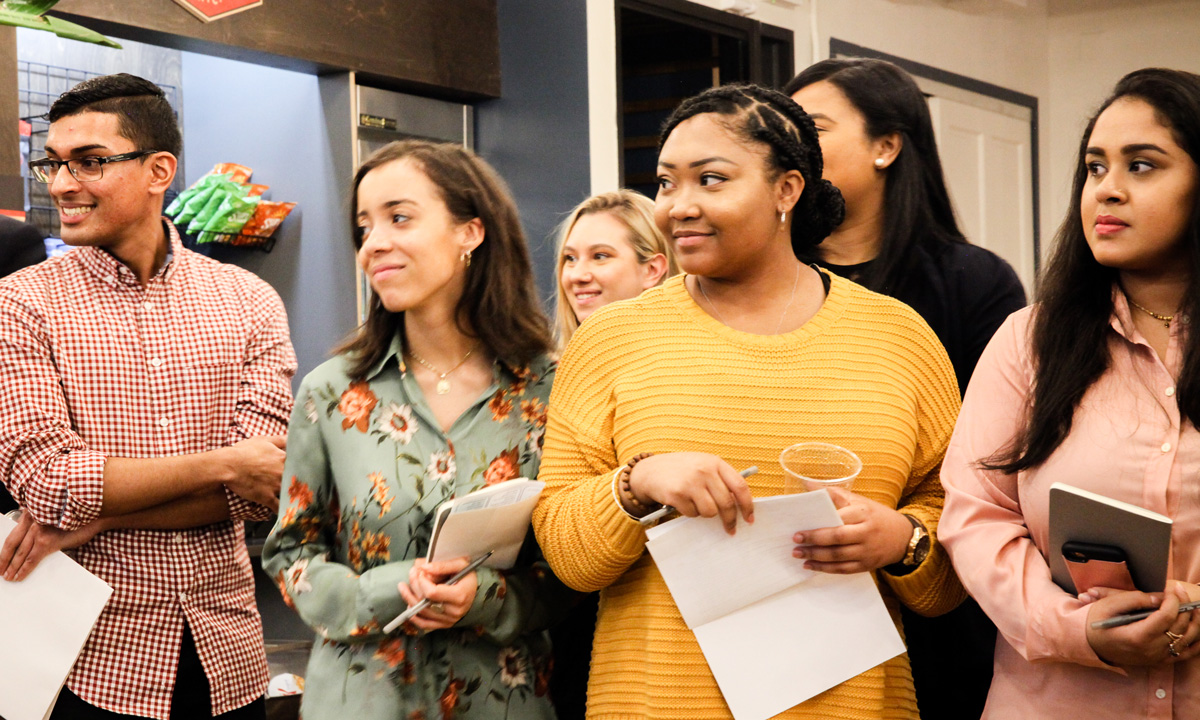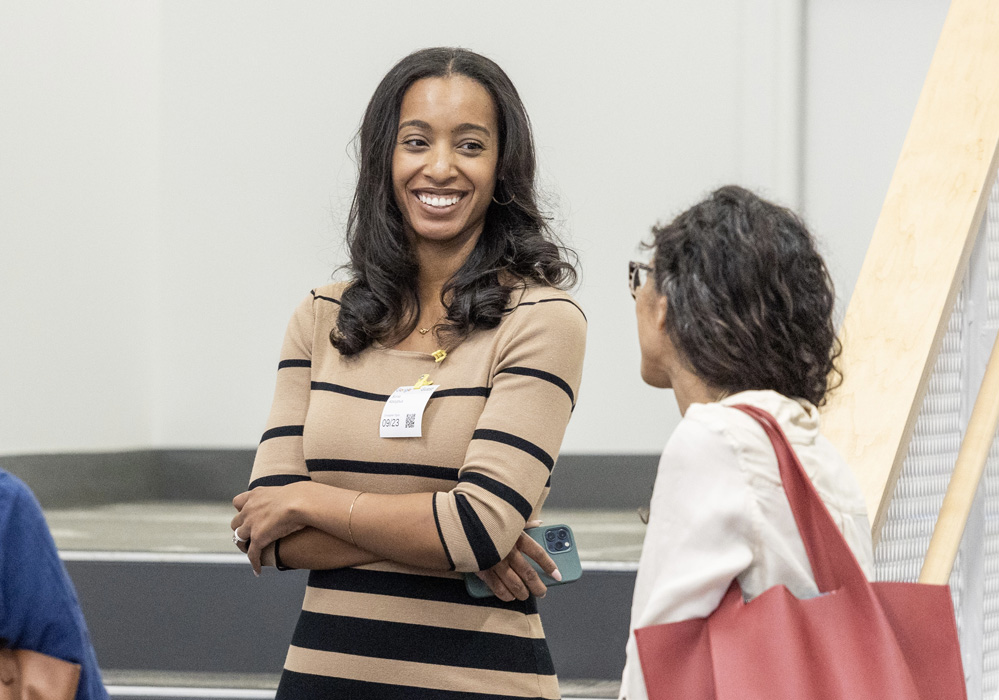Who You Know: Social Capital is Key for First-Gen Students’ Career Success
New report that uses data from thousands of young job seekers finds having senior professionals in your network yields strongest career results.

Get stories like this delivered straight to your inbox. Sign up for The 74 Newsletter
A growing New York nonprofit is using a newly released report to cement data around the axiom that social capital — or who you know — is key for first-generation college graduates searching for their first job.
The report by Basta, an organization that connects first-generation college graduates with careers, tracks the experiences of young job seekers, revealing that not all networks are the same.
It’s particularly crucial to have a network that includes senior professionals, said Sheila Sarem, Basta’s founder. These people unlock resources for first-generation job seekers, like getting a referral or bypassing the typical application. A candidate with a referral was four times more likely to be hired, according to the report.
“The importance of peer and near-peer networks — those networks do matter for a ton for different reasons … [but] the best and fastest and most effective way to [get a job quickly] is to have senior professionals in your network and in your corner,” Sarem said.
First-generation, low-income and underrepresented students have limited access to this type of high-impact social capital, according to the nonpartisan think tank Christensen Institute.
“Young people from the top socioeconomic quartile report nearly double the rate of non-family adults accessible to them compared to young people from the bottom quartile,” says a July 2020 institute report. “This gap should be troubling to anyone trying to support students’ success not only in school, but also in accessing high-quality jobs down the line.”
Another major takeaway from the Basta report: Exposure to a broad array of careers counts heavily when trying to land a job, seemingly more important “than just about every other factor we can isolate, including GPA, college major, and having had prior internships.”
The report’s findings were gathered through a career navigation survey software that Basta created in 2020, called Seekr. More than 10,000 people have used the tool to learn about their strengths, career goals and job search strategies. The majority of Seekr participants are first-generation college students.
Specifically for the report, the data was collected from 3,195 young adults between July 2020 and December 2021. Some 57% were low-income Pell Grant recipients, 62% were first-generation college students, 17% were Black, 21% were Latino, 12% were East Asian or Asian American, 12% were South Asian or Indian American and 6% white. The respondents leaned slightly female — 51% versus 46% who identified as male.
Basta found that most survey participants had a network consisting of personal connections — neighbors, family and friends — and this group asked for career help less often.
Participants with more professional connections asked for help the most, but the ones who sought help most often and converted that assist most successfully were those whose professional networks included senior professionals — professors, managers, mentors.
Sarem said these findings, plus other Seekr results, help institutions become smarter about how they serve various populations, like first-generation students, and professionals and investors learn more about elevating these critical networks for young people.
Created in 2016, Basta has served more than 9,000 young people and had $3.9 million in annual revenue, according to its most recent 2021 tax filing.

“If we believe first-generation college students have everything it takes to succeed in the world of work and we really believe that employers do want to hire across lines of difference, then what’s the problem?” Sarem said. “We built our program model to create some connective tissue across those two audiences.”
A 2023 Center for First-Generation Student Success report found that even after earning their bachelor’s degree, first-generation college graduates were less likely to land a job that required it than their peers. One year after getting their bachelor’s in the 2015-16 academic year, 44% of first-generation college graduates had a job that called for the degree versus 52% of graduates who were not the first in their family to finish college.
Basta also offers a free, four- to six-month fellowship program that includes career education and coaching in preparation for a student’s first job out of college. Roughly 81% of fellows secure full-time jobs with an average salary of $62,700, according to Basta.

Hadler Raymond entered the Basta fellowship in 2020 while attending New York City’s John Jay College of Criminal Justice. He credits the fellowship for him landing a job at Bloomberg after his 2021 graduation.
Raymond said he would meet with a career success manager once a week to craft resumes and learn transferable skills for future jobs.
“Basta fosters a very strong community,” he said. “Everyone being first-generation is something that helps with that, because everyone could relate to that struggle of having to figure things out by yourself, because your parents can’t necessarily help you with it. The Basta community itself was the perfect network.”
The report, Sachem says, affirms how important social capital is while adding nuance and understanding to what it looks like in practice for first-generation students like Raymond.
“I think over the last four years, there’s just been questions about, like, ‘What does this mean? Do we keep investing in this?’ ” she said. “Well, this is a really important moment to show exactly how critically important the social capital concepts are, when we’re trying to drive economic mobility, which is what education is really designed for — to create more opportunity for more people.”
Disclosure: The Bill & Melinda Gates Foundation, Carnegie Corporation of New York, Charles and Lynn Schusterman Family Philanthropies and Heckscher Foundation for Children provide financial support to Basta and The 74.
Get stories like these delivered straight to your inbox. Sign up for The 74 Newsletter

;)
